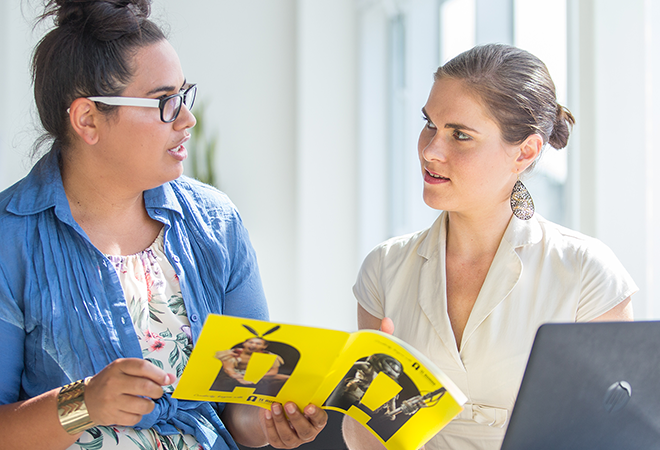
Dyslexia - Adult Literacy and Numeracy Resources
Overview
Explore information and resources related to teaching adults with dyslexia.
The resources cover topics such as what dyslexia is, how it can be identified, how it can affect people and what support can be put in place by educators.
Key Points to Note:
- For adults with dyslexia to succeed and reach their full potential, it is vital for educators and employers to be informed of what dyslexia is, how it can be identified, how it can affect people and what support can be put in place.
- These resources will help educators and employers understand more about dyslexia and how to teach and work with adults with dyslexia.
- To get started, watch the Introduction to Dyslexia Resources video.
- Keep in mind, some teaching and learning resources have supporting resources, including videos and conference presentations.
A resource explaining what dyslexia is and what it isn't, how it affects people, and how it can be viewed as a strength.
- 2 December 2016
A YouTube video introducing the dyslexia resources to educators.
- 20 November 2016
A resource explaining how dyslexia can be identified.
- 2 December 2016
An infographic poster showing some of the ways to recognise adult learners who have dyslexia.
- 1 October 2018
A resource explaining how to meet the social and emotional needs of learners with dyslexia.
- 2 December 2016
A best practice guide to help support and teach adult learners with dyslexia.
- 28 October 2018
A NCLANA Symposium presentation exploring the strategies for teaching learners with dyslexia by University of Waikato's Dr Sue Dymock.
- 30 June 2012
A one-page guide prepared by Ako Aotearoa for anyone interested in the positive features of dyslexia.
- 28 October 2018
A NCLANA Symposium presentation on the professional development needs of adult literacy educators by Ako Aotearoa's Annette van Lamoen.
- 30 June 2013
A two-page guide prepared by Ako Aotearoa for tertiary education tutors and teachers who teach dyslexic learners.
- 28 October 2018
A book on dyslexia prepared for the Tertiary Education Commission by Dr Sue Dymock and Professor Tom Nicholson.
- 30 June 2013
A resource explaining how to meet the learning needs of learners with dyslexia.
- 2 December 2016
A resource that supports the teaching and learning resource: Dyslexia, How Do I Know if My Learner Has Dyslexia?
- 2 December 2016
Video
Defining Dyslexia
A video resource that supports the teaching and learning resource: Dyslexia, What is Dyslexia? and the book: Dyslexia Decoded.
- 22 October 2012
Video
Diagnosing Dyslexia
A video resource that supports the teaching and learning resource: Dyslexia, How Do I Know if My Learner Has Dyslexia? and the book: Dyslexia Decoded.
- 26 October 2012
An interactive video resource that supports the teaching and learning resource: Dyslexia, How Can I Meet the Needs of Learners with Dyslexia? Part One.
- 29 October 2012
A video resource explaining how to tailor teaching to adult learners with dyslexia.
- 26 October 2012
Video
Coping with Dyslexia
A video resource explaining how to teach adult learners with dyslexia.
- 30 October 2012
Video
Living with Dyslexia
A video resource featuring adult learner Ryan Sutton explaining his personal experience of living with dyslexia.
- 30 October 2012
A video resource about dyslexia among employees in the workplace.
- 30 October 2012
A book on dyslexia prepared for the Tertiary Education Commission by Dr Sue Dymock and Professor Tom Nicholson.
- 30 June 2013
This Dyslexia-Friendly Style Guide can be used as a reference when creating print and digital resources that are easy to read and accessible to dyslexic people or those needing literacy support.
- 11 September 2023
Resources for people working with adult learners, including resources on embedding language, literacy and numeracy in a range of contexts and supporting neurodivergent learners.